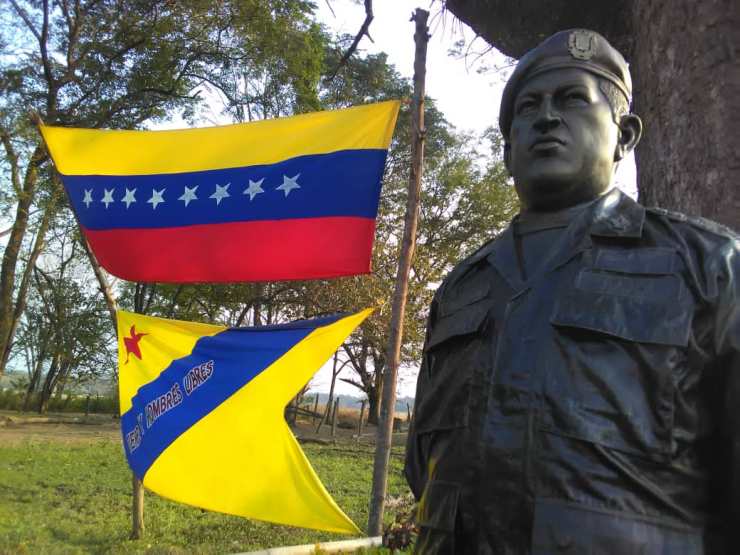
“We are an unconventional army that works to win an unconventional war”: this is how, in Venezuela, the more than 2,200 volunteers of the Epo are defined.
The Epo is one of the many aggregated subjects that, in the midst of an unprecedented economic aggression, contribute to keeping the Bolivarian revolution alive. As the militant Edwin Rojas explains, the volunteers are workers who, since 2016, collaborated to assist in the recovery of the assets of public enterprises, national institutions, communities and productive organizations in the various sectors: industry, agriculture, food and services.
The Epo intervenes with work teams when a productive structure is for various reasons paralyzed or unable to function well. At that point, at their request and on a voluntary basis, patriots with experience in different fields work to recover machinery and infrastructure, with intense working days.
Since 2016, the Epo has conducted 14 “productive battles” in ports, including a: La Gaviota, Maquinarias Barinas, Planta Madre Wuanaguanare, Inaf, Gas Municipal, Paraguaya Refinancion Center (Crp), Inatur Guárico, Nutrivida and Comuna Maizal. The last two cases are particularly important for the food security of a country that is laboriously working to get out of the oil monoculture. Maizal is an important agricultural reality that involves hundreds of producers. Nutrivida produces enriched foods for children, then distributes them through school feeding programs (Pae) and other public distribution networks (Pdval, Mercal, Abastos bicentenary).
This is how the Epo describes its raison d’être: “It is an objective fact that the country’s economy is currently in critical condition, and the experience accumulated by the workers of the companies that have been recovered, employed, nationalised and self-managed (Ronca) is a mandatory strategy in the face of the abandonment of these companies by their former owners. The creation of alliances at grassroots level, between the various companies belonging to the Ronca circuit, takes the form of mutual support between workers, so as to put their respective skills at the service of each working entity, almost without having to invest money. The complementarity increases their productive capacity of the operative enterprises and reactivates those that were operative. The first aim is the production of necessary goods and services. The other is the contrast to the plans of the bourgeoisie that would like to re-privatize the enterprises”.
In short, the Epo wants to demonstrate “the political strength of the people organized in communas and councils of workers”.
Originally Published on Cambiailmondo
Translation by Internationalist 360°
Prensa Internationalist 360°
